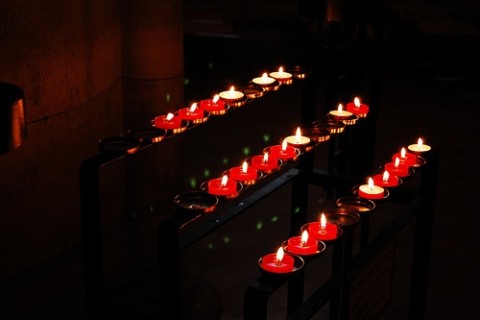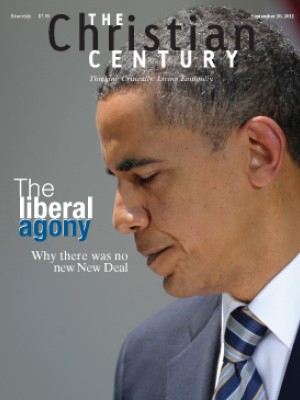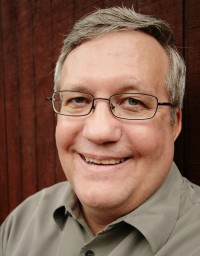Where do you pray

Years ago, I spent three weeks in Egypt, exploring church life in a predominantly Muslim country. The group I was with visited an array of Coptic and Protestant churches in Cairo and Alexandria and in country villages.
One of the most memorable moments came when we were talking to a sagacious priest. He summarized the difference between Egypt and America in two divergent images. The image of America is the rocket ship, blasting off into unknown realms, going places no human has been before. America is focused on the future and always looking ahead. The image of Egypt, he said, is the pyramids, thousands of years old and still standing in the sands outside Cairo. Rooted in a deep history, Egypt is focused on the past and the importance of tradition.
As interesting and revealing as that conversation was, another phrase stuck even more strongly in my mind, one that suggested a different approach to life in the church. In the U.S., if we want to know someone's church affiliation, we ask the straightforward, prosaic question, "Where do you go to church?" In Egypt, however, people ask, "Where do you pray?"
Read our latest issue or browse back issues.
The question threw me the first time or two. Doesn't a Christian pray anywhere and everywhere? But the context eventually made the query clearer to me—that and the fact that I actually heard the question properly answered. "Where do you pray?" was the same question I typically asked as "Where do you go to church?" So when an Egyptian Christian I had just met asked where I prayed, I knew to respond, "I pray at St. Barnabas Episcopal Church in Glen Ellyn, Illinois."
I was soon enamored of the phrase. "Where do you pray?" has much to commend it over "Where do you go to church?" "Where do you go to church?" fits an individualistic and consumeristic mind-set. It suggests the model of church as a vendor of various goods or services. You find a place that offers the religious or spiritual programs you want and then you go there, just as you choose and go to a particular dentist or supermarket or gas station. "Where do you go to church?" also suggests nothing of the purpose of going to church. Compared to "Where do you pray?" it's an anemic and underdetermined question.
"Where do you pray?" is the more substantive query. It denotes the central reason one attends church. The consumeristic mind-set prefers to leave open the purpose of any activity, including that of going to church. You go to church for your reasons, I go for mine. But "where do you pray?" uninhibitedly declares that one goes to church to worship, first and last.
"Where do you pray?" also suggests a rich theology of prayer. Prayer is not something we do first and foremost on our own, by ourselves. Instead we do it primarily with other Christians. Prayer is preeminently a communal rather than an individual activity. We learn to pray at church and as part of the church. At church and as part of the church we continue to practice prayer, through a lifetime.
When Jesus taught the disciples how to pray, he taught them as a group. "Our Father . . . Give us our daily bread . . . Forgive us our debts . . ." Likewise, the apostle Paul saw believers as incomplete without one another. They become one mind and one body when they bring their various gifts to worship, to prayer, and share them with one another. "Now there are varieties of gifts, but the same Spirit," wrote Paul, "and there are varieties of services, but the same Lord; and there are varieties of activities, but it is the same God who activates all of them in everyone. To each is given the manifestation of the Spirit for the common good" (1 Cor 12: 4–7).
Of course, none of this means we only pray at church, that individual prayers away from church, at home, work or wherever, should be eschewed. It's simply a matter of priorities and understanding what is basic. My most formative and basic prayer is done communally—this communal prayer forms, informs and undergirds my individual prayer. "Where do you pray?" is the right question to ask and the right way to ask it.







